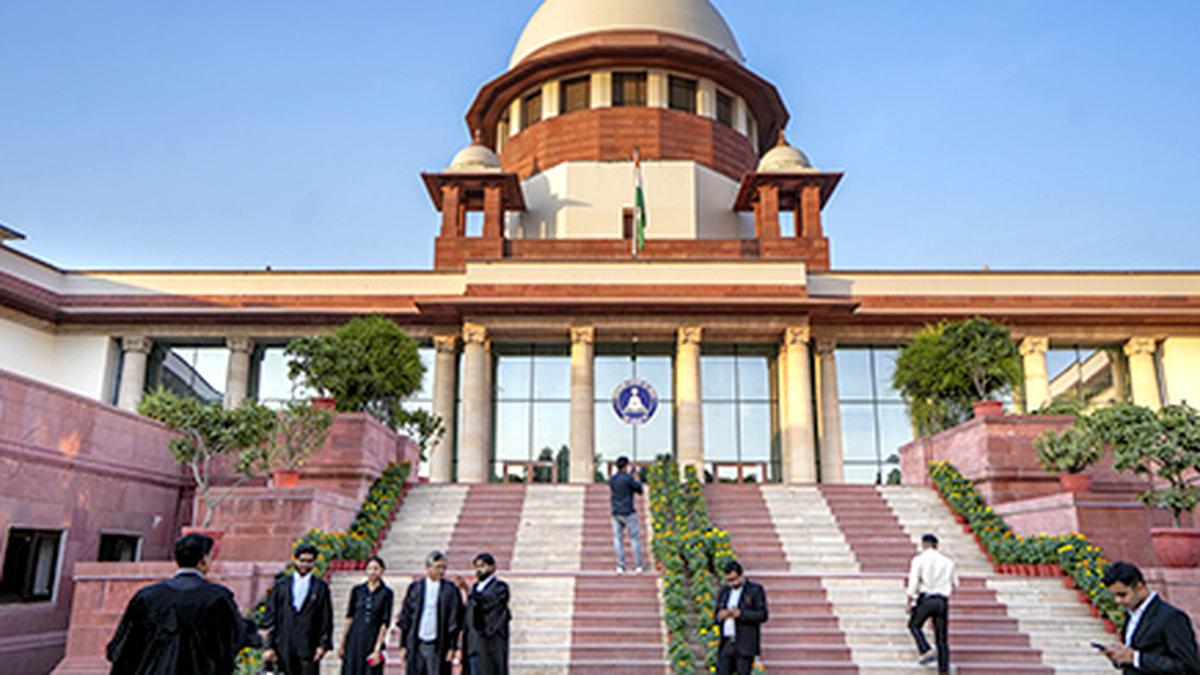
Sexual harassment case cannot be closed on basis of compromise between parties: Supreme Court
The Hindu
Supreme Court rules sexual harassment cases cannot be closed after compromise, emphasizing serious societal impact of such offenses.
The Supreme Court on Thursday (November 7, 2024) said a sexual harassment case cannot be closed after a compromise is reached between the rival parties as such offences have serious impact on the society.
The observation came while setting aside an order of the Rajasthan High Court which had quashed the FIR against a teacher who was accused of sexually molesting a 16-year-old girl at school in Rajasthan's Sawai Madhopur district.
A bench of justices C T Ravikumar and Sanjay Kumar said the high court has misread and misapplied the law laid down to quash the subject FIR and all further proceedings.
"The commission of such offences against the children should be viewed as heinous and serious. Needless to say, that commission of such offences cannot be taken lightly as offences of private nature and in fact, such offences are bound to be taken as offences against the society...
"We are at a loss to understand how the High Court arrived at the conclusion that in the case on hand a dispute to be resolved exists between the parties and further that to maintain harmony the FIR and all further proceedings thereto should be quashed even without adverting to the allegations raised against the 3rd respondent in the subject FIR," the bench said.
The apex court also rejected the submission of the teacher and the father of the victim who challenged the locus standi of the PIL petitioner in the case. "When by quashing the FIR by invoking the power under Section 482, CrPC, the accused was relieved of the liability to face the trial coupled with the aforesaid circumstances and the position of law qua locus standi of third party to maintain a petition under Article 136 of the Constitution of India, as revealed from the decisions referred above, we have no hesitation to hold that the challenge based on the appellants' locus standi got no merit at all," the bench said.
The top court said when an incident of this nature and gravity allegedly occurred in a higher secondary school, that too from a teacher, it cannot be simply described as an offence purely private and has no serious impact on society.

According to the historians, the kingdom was marred by internal strife for power. Despite several hurdles, Ahmad Shah I created an environment that attracted scholars from around the world. Besides promoting art and literature, the Mahmud Gawan Madrasa -an educational institution was established during his rule.

It will comprise 24 sessions across two days and host over 70 speakers from around the globe representing diverse aspects of mentoring to “create a vibrant and connected youth mentoring community that drives evidence-based, innovative mentoring models in the country,” as the release puts it. Some key themes that will be addressed include mentoring and educational policy, designing quality mentoring programmes, decoding the global evidence around youth mentoring, innovations in mentoring etc.









